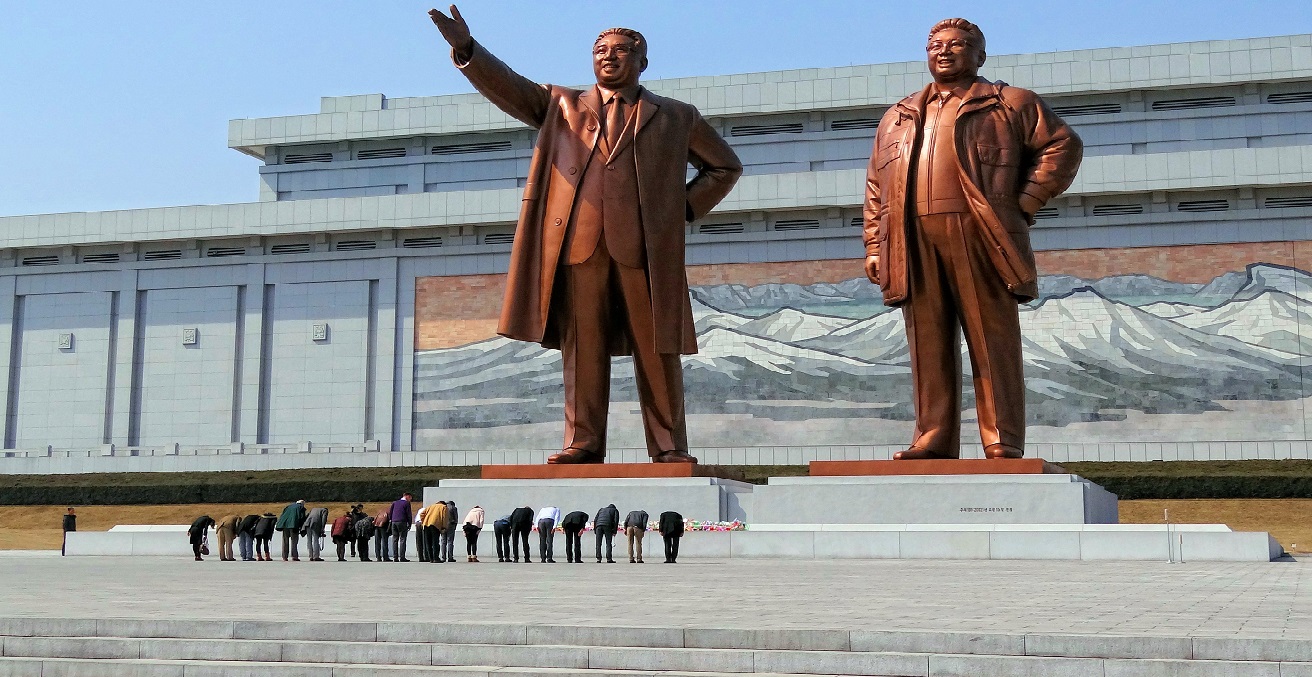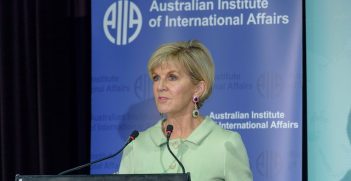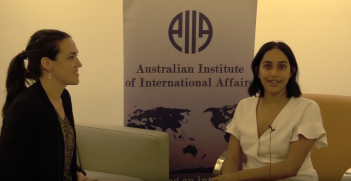North Korea: Kim Yo Jong Joins the Family Firm

North Korean leader Kim Jong Un has appointed his sister Kim Yo Jong to a position of power, further solidifying the family dynasty and signalling that he is here to stay.
North Korea is every bit as much a family firm as Singapore. At the present time the city-state is experiencing a very public falling out between the children of founder Lee Kuan Yew, though there is no suggestion that they may yet share the fate of some of their North Korean counterparts. The promotion, therefore, of Kim Yo Jong, sister of leader Kim Jong Un, to membership of the Politburo of the ruling Korean Workers Party is in keeping with the dynastic character of the regime, both Kims being grandchildren of founder Kim Il Sung. North Korea survives as the only hereditary socialist autocracy on the planet, and this latest leadership development demonstrates that its original mainsprings are still functioning, albeit with diminished vigour.
Kim Il Sung led North Korea from its inception as a separate state entity until his death in 1994. Kim Il Sung was originally chosen by the Soviets for the leadership role in 1945, having spent the years 1941-45 in the Soviet Union serving in an irregular military unit. He rose to prominence in the 1930s as an anti-Japanese guerrilla in the Chinese northeast (where he was under the command of the local Chinese Communist Party structure). When he returned to Korea he had to contend with other potential leaders, but succeeded in purging competing factions of Korean communists and placing his guerrilla comrades in commanding positions by the early 1960s. Members of this group intermarried, and they and their descendants comprise a ruling stratum in North Korea to this day.
In time his son, Kim Jong Il, was chosen to replace him. Many other relatives have also occupied positions of influence. Between 1970 and 1974, immediately prior to the grooming of Kim Jong Il for the role of successor, Kim Il-sung brought his surviving brother, Kim Yong Ju, to the leadership inner circle. Fading from the picture after 1974, he again made a brief appearance in the 1990s to endorse the succession of the next generation.
There are now many members of Kim’s extended family, and factionalism runs deep. Rival factions have formed and dissolved around wives, mistresses and in-laws, in the manner of Victorian gothic novels. Kim Pyong Il, Kim Jong Il’s younger half-brother (and uncle of the present leader) has spent many years as a diplomatic envoy in Eastern Europe, effectively in exile. He has two adult children. Other close family members are also in semi-permanent foreign residence. His half-sister, Kim Kyong Hui, in her day enjoyed the confidence of Kim Jong Il, and her husband, Jang Song Thaek, was one of the leader’s closest confidants (and especially prominent in commercial dealings with China). He did not long survive the transition to the Kim Jong Un era, however, with his physical detention being shown on Pyongyang television. He was executed, reportedly in gruesome fashion, in December 2013.
Kim Jong Un’s older half-brother, Kim Jong-nam, was assassinated—by assailants allegedly managed from within the local DPRK embassy employing the banned nerve agent VX—in Malaysia in February 2017. For a time his star had been in the ascendant but even before he had blotted his copybook by being discovered in 2001 visiting Japan incognito (he said he wanted to take his family to see Tokyo Disneyland) his father had transferred his affections to the children of his second wife. Living under Chinese protection largely in Macau, Kim Jong Nam had been incautious enough to speculate, in interviews, on the inability of North Korea to survive without structural reform, and there is some evidence that he had been the subject of earlier attempts to silence him. His eldest son, Kim Han Sol (he has other children), abandoned plans to study at Oxford as a result of his father’s demise.
Kim Jong Un has an elder brother, Kim Jong Chol. Relations between the two are apparently good, though Kim Jong Chol was passed over by his father for the succession. He has often been photographed by Japanese journalists at Eric Clapton concerts (including in London’s Albert Hall), though there is no indication that his taste in music has been a factor in his political obscurity.
Kim Jong Un’s sister, Kim Yo Jong, began to play an official role soon after it became apparent, in September 2010, that Kim Jong Un was to replace the ailing Kim Jong Il (who died in December 2011). Her recent elevation can be placed in this trajectory. Her aunt, Kim Kyong Hui, had been named as a member of the Politburo in 2010 (though her official position did not save her husband).
As is generally conceded, in a hereditary system blood trumps every other factor (thus explaining why a most unlikely figure, the current Duchess of Cornwall, will—in due course—become Queen of Australia, despite not having visiting these shores for the first 62 years of her life). It is therefore no small irony that in Singapore the ostensible rationale for the particularities of the leadership structure is ‘meritocracy’, though the standard phrase of the local taxi drivers—Lee jia dian (‘the Lee family shop’) is more obviously appropriate.
In North Korea, by contrast and despite its still socialist veneer, the principle of the ‘sacred Baektu blood line’ is openly espoused. Baektu is both a holy mountain in Korean traditional mythology and also the guerrilla camp birthplace claimed for Kim Jong Il, who rather inconveniently was actually born in the Soviet Union. Kim Yo Jong is thus, along with her siblings, the carrier of this line, and therefore her elevation is in keeping with previous North Korean practice.
Like her brothers, she was schooled for a time in Switzerland, though whether she turned this experience to useful account is unknown; her brother, the present leader, generally appeared in class only in the afternoons and his lack of application was reflected in his mediocre academic record. Possessing such a background, these individuals can have no illusions regarding the backwardness and obscurity of their wretched half-country, as well as comprehending only too well the visceral hostility that their missile and nuclear endeavours are bound to generate in the United States. Nevertheless, they must also have concluded that only the most radical of expedients can keep them and their peers from suffering the fate of the Ceausescus. It should be recalled that the Romanian dictator was so overwhelmed by the scale of the personality cult that he witnessed on his official visit to Pyongyang in 1971 that he became determined to replicate it. Only the original now survives, though sadly diminished. In his day Kim Il Sung travelled extensively and met many world leaders (even including Sukarno in Indonesia). His grandson has made no official visit abroad, not even to China.
James Cotton is Emeritus Professor at the University of New South Wales Canberra, Australian Defence Force Academy. He is a Fellow of the Australian Institute of International Affairs.
This article is published under a Creative Commons Licence and may be republished with attribution.





